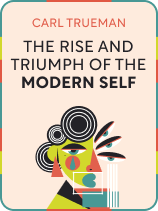

This article is an excerpt from the Shortform book guide to "The Rise and Triumph of the Modern Self" by Carl Trueman. Shortform has the world's best summaries and analyses of books you should be reading.
Like this article? Sign up for a free trial here.
Are you worried about the decline in traditional values? Can anything be done to preserve them in today’s climate?
In The Rise and Triumph of the Modern Self, Carl Trueman claims that traditional Christian views have become stigmatized as immoral, irrational, and bigoted. He considers modern cultural changes a disaster, as they undermine the traditional Christian morality that forms the foundation of Western culture.
Continue reading to learn Trueman’s advice for Christians in today’s society.
Advice for Christians
Trueman, a professor of biblical studies and ecclesiastical history, states that the goal of his book is primarily to provide a history of the gradual transformation into modern selfhood rather than a set of guidelines for the present. However, he still offers advice for Christians seeking to preserve traditional values.
1. Find inspiration in the second-century Christian church. At this time, Christians were a religious minority living in a powerful empire where Roman authorities viewed Christians with moral suspicion. Nonetheless, Christians thrived as a small community of firm believers who adhered to their religious laws.
(Shortform note: Drawing inspiration from this period provides a challenge in that historical records are scarce. However, one surviving document, the Epistle to Diognetus, paints an instructive picture of early Christian life. It explains that Christians were not recognized by typical markings of a cultural group (such as common dress), but assimilated to the laws and customs of their local cultures. However, they quietly followed their own religious doctrines, such as monogamous marriage and not exposing children (a Roman practice of leaving unwanted children to die in the elements). Christians lived in their societies as if simply “passing through.”)
2. Prioritize moral laws over aesthetics. Trueman contends that many modern Christians have adopted the modern preoccupation with image and aesthetics to attract followers. Trueman considers this too close to the Romantic poets, who prioritized aesthetics over moral law.
(Shortform note: In calling on Christians to prioritize moral laws over aesthetics, Trueman stakes out a position on a longstanding debate in Christianity. During the Reformation, Protestants condemned the use of statues, paintings, and ornamental architecture in Christian worship, considering these superstitious and idolatrous. In response, the Roman Catholic church began investing more heavily in Christian artwork to differentiate itself and argue against Protestantism. This debate echoed earlier controversies over iconoclasm and the role of art in Christian worship going all the way back to the Byzantine Empire.)
3. Create a strong community. Trueman explains that religions flourish when their members form strong communities. He recommends cultivating stronger ties among religious believers to help Christianity flourish.
(Shortform note: Researchers have found that membership in religious communities correlates to higher levels of happiness, health, and civic engagement. This suggests that not only are communities conducive to continuing religious values and beliefs (as Trueman suggests), but that community and belonging are some of the most important things religions offer their followers.)
4. Recognize the importance of the physical body. Trueman asserts that Christianity cannot allow itself to become detached from the truth that humans were created in God’s image and that Christian commitments require full recognition of the human body’s importance to creation.
(Shortform note: Christian doctrines on the body vary by denomination. However, many highlight a core teaching from the apostle Paul in the book of First Corinthians: “Your body is a temple… You are not your own; you were bought for a price.” This suggests an obligation to care for your body because you’re your body’s steward, not its owner.)

———End of Preview———
Like what you just read? Read the rest of the world's best book summary and analysis of Carl Trueman's "The Rise and Triumph of the Modern Self" at Shortform.
Here's what you'll find in our full The Rise and Triumph of the Modern Self summary:
- How the modern conception of selfhood has changed over the centuries
- How Christian views have become stigmatized, damaging Western culture
- What modern Christians can do to preserve traditional values






